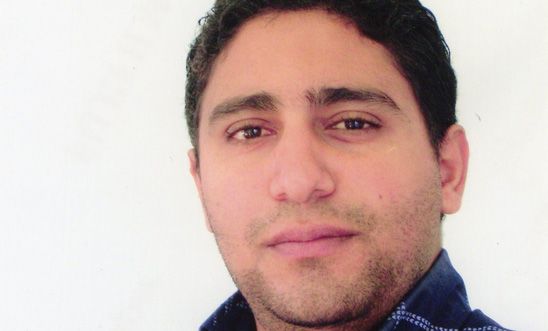
Press releases
Tunisia: Prisoner of conscience Jabeur Mejri freed, but conviction must be quashed

Last night’s release of Jabeur Mejri, a prisoner of conscience who spent two years in prison for publishing online articles and cartoons deemed offensive to Islam, is long overdue and must be followed by the authorities quashing his sentence and conviction, said Amnesty International.
Amnesty had campaigned heavily for his release, including as part of its annual Write for Rights campaign in December 2013.
Philip Luther, Director for the Middle East and North Africa at Amnesty International, said:
'Jabeur Mejri’s release is a huge relief for his family and a victory for all the activists who have campaigned on his behalf across the globe. Putting him behind bars for two years for the images he posted online was a travesty that risked crushing all hope of genuine progress on freedom of expression in post-Ben Ali Tunisia.
'Jabeur Mejri should never have been charged, let alone convicted and imprisoned, merely for freely expressing his opinions. A pardon is insufficient. Tunisia’s authorities must now set the record straight. His conviction and sentence should be quashed and his name must be cleared once and for all.'
A presidential pardon, which does not expunge his criminal record, was announced for Jabeur Mejri on 19 February 2014. But he remained in detention as an arrest warrant relating to a complaint of embezzlement dating back to 2011 had been issued against him on 28 January 2014.
The Court of Appeal in Monastir approved a request by his lawyer to release him provisionally on the evening of 4 March 2014, pending the completion of an investigation into these allegations.
Jabeur Mejri denies the accusations, for which he could face up to 10 years’ imprisonment, and his lawyer has said there is no evidence to back them up. Amnesty International fears they were brought as a form of judicial harassment against him.
“The filing of a new arrest warrant against Jabeur Mejri two weeks before the presidential pardon was granted is a worrying signal that his ordeal may not be over yet,” said Philip Luther.
Under President Ben Ali, who was ousted in January 2011, trumped-up charges and fabricated accusations were commonplace. They routinely led to imprisonment by a justice system that did the executive’s bidding to detain political prisoners, including prisoners of conscience.
“Jabeur Mejri spent two years in jail for expressing his opinion, a right which is enshrined in Tunisia’s newly adopted constitution. The authorities must live up to their obligations to protect this right and ensure that the new accusations against him are not just a means to further harass him,” said Philip Luther.
Amnesty International is also calling on the Tunisian authorities to amend Ben Ali-era legal provisions that criminalize the peaceful exercise of the right to freedom of expression, including Articles 121(3) and 226 of the Penal Code, which were used to convict Jabeur Mejri.